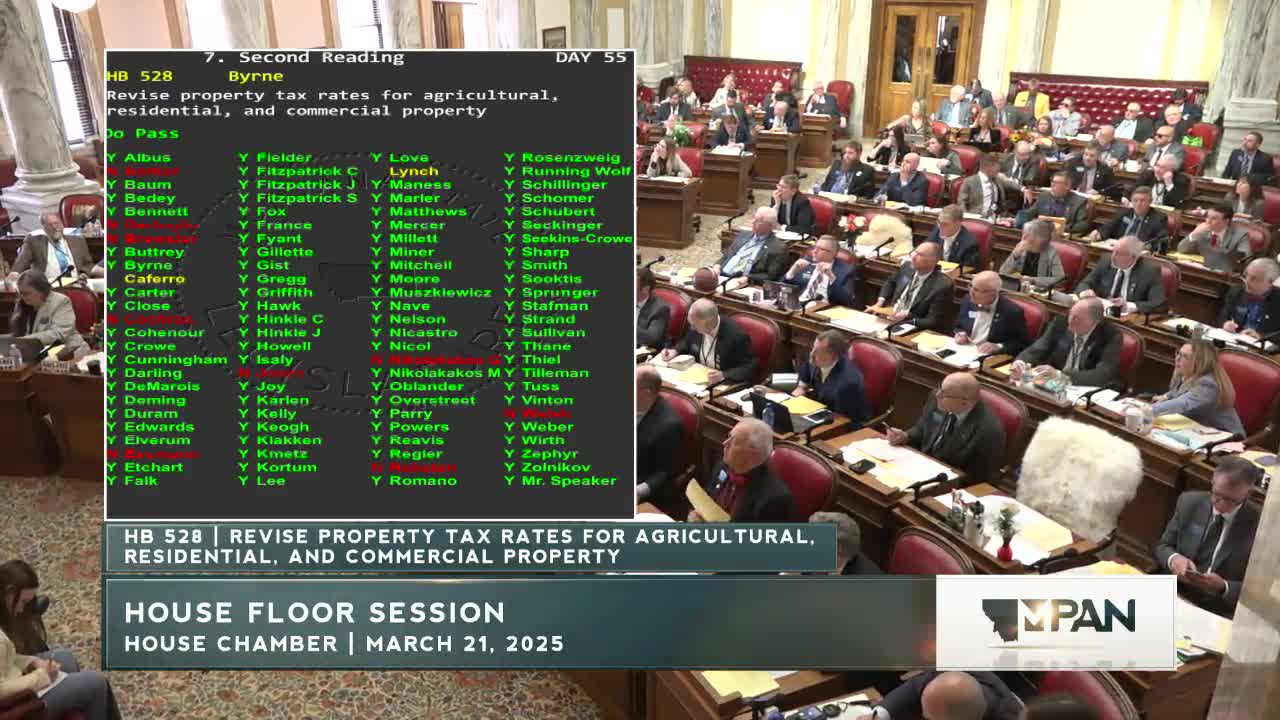House advances childcare worker scholarships but rejects broader income-eligibility expansion
Get AI-powered insights, summaries, and transcripts
Subscribe
Summary
The Montana House moved House Bill 456, authorizing Best Beginnings scholarships for childcare workers, to appropriations after a 61-38 second-reading vote. A companion measure to expand family eligibility, House Bill 457, failed on second reading, 44-55.
The Montana House on Friday advanced a measure to expand Best Beginnings childcare scholarships for people who work in licensed childcare settings but rejected a linked bill that would have widened family income eligibility.
House Bill 456, sponsored by Representative Katie Carlin, passed second reading in the House Committee of the Whole by a 61-38 vote and will be re-referred to the Appropriations Committee for consideration of its $5.5 million-per-year general fund appropriation.
The scholarship bill is intended to improve retention and recruitment of childcare workers by allowing workers’ children to receive scholarships that reduce families’ out-of-pocket costs. Representative Carlin told the committee the Department of Public Health and Human Services (DPHHS) provided data used to model the $5.5 million figure and that resource-and-referral agencies would administer eligibility and co-pay calculations.
Supporters said the program helps workers stay in the workforce and helps employers fill openings. Representative James Howell cited Department of Labor and Industry data showing that lack of childcare prevents business expansion and said the investment could increase workforce participation. Representative Konhauer said the bill is “an investment” that could add taxpayers by enabling parents to work.
Opponents focused on scale and recurring cost. Representative Annette Mercer said the pair of bills would total roughly $44 million over the biennium and urged caution about increasing recurring state spending. Representative Kelly raised concerns about continuing large fiscal notes and said the House should “stop spending.” Representative Schillinger called the measure corporate welfare for childcare providers.
A second, companion bill, House Bill 457, sponsored by Representative Carlin, would have raised the program’s family eligibility to 85% of state median income (the maximum allowed under federal rules) and carried a fiscal note totaling roughly $17 million per year. After floor debate, HB 457 failed second reading in the Committee of the Whole, 44-55.
Both bills were described in committee testimony as built on Montana’s Best Beginnings pilot and comparable programs in other states. Carlin said DPHHS would screen applicants to confirm employment or training status, determine income-based co-pays, and assign scholarship payments to licensed providers. Representative Gillette noted the fiscal note for HB 457 at $17 million per year and asked lawmakers to weigh that increase against the state budget.
Because HB 456 carries a general-fund appropriation, it now goes to Appropriations for consideration of funding levels. No final appropriation was adopted on the House floor during the session recorded in the transcript.
Votes at a glance: HB 456 — second reading (do pass to Appropriations): 61 aye, 38 no; HB 457 — second reading (do pass): 44 aye, 55 no.
Implementation and next steps: If Appropriations funds HB 456 and the legislature ultimately passes the bill, DPHHS and local resource-and-referral agencies would administer applications and disbursements. HB 457’s failure means the eligibility expansion proposed there will not move forward unless reintroduced or attached in another vehicle.
Why it matters: Supporters framed HB 456 as workforce policy that could unlock additional labor participation; opponents said the state should avoid recurring large appropriations without clearer proof of long-term cost-effectiveness.
